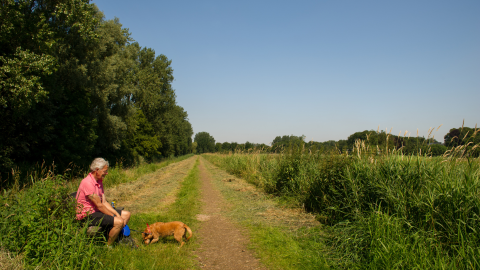Older People and Gambling

Older folks are particularly at risk of gambling harm due to the ease at which seniors can access gaming venues, as well as risk factors such as loneliness and social isolation.
In this blog post, we’ll talk about the signs of gambling harm in older people, why older Queenslanders gamble, and how you can help your older loved one and yourself.
Signs of gambling harm in seniors
Gambling becomes harmful when it starts to have negative consequences on the person’s life and wellbeing.
Signs that gambling is becoming harmful may include:
- Sudden decrease in funds
- Minimising gambling losses
- Bragging about gambling wins
- Constant conversation about gambling
- Gambling with pension funds or savings
- Concealing or hiding the extent of their gambling
- Not being able to set limits on gambling activities
- Gambling seeming to be their main or only hobby
- Trying to gamble as a solution to financial problems
- Spending increasing amounts of time and money gambling
- Irritability when not gambling or when asked about gambling.
Gambling should be a never be harmful to one’s mental health, relationships, or finances.
Why older people gamble in Queensland
Research by the Social Research Centre at the University of Queensland (UQ) shows that older Queenslanders gamble largely due to loneliness as well as ease of access to gaming venues.
Loneliness
UQ’s study suggests that socialising and reducing loneliness are primary motivators for older people to gamble.
Older adults are at higher risk of social isolation and loneliness due to factors such as mobility issues, friends or spouses passing away, and retirement. Gaming venues may provide a social atmosphere, while gambling may temporarily fill the void left by loneliness.
“I knew in myself I was unhappy. I was unhappy in my marriage, unhappy in my life. That was why I gambled.”
-Louise, GHS Client
Ease of access
Another UQ study suggests that the risks of gambling harm in older adults increases as the accessibility of gambling venues increases.
Gaming venues in Australia often offer incentives targeting older people, such as discounted meals for seniors, free entertainment for older audiences, a comfortable environment, and free shuttle buses. UQ’s study has found that over half of older people participating in gambling have participated in venue promotions.
While these promotions seem positive and well-intended, they can increase an older person’s risk of gambling harm.
“Our findings suggest that accessibility is only part of the problem, as gambling establishments might be taking advantage of older adults.”
-Professor Bill von Hippel, University of Queensland School of Psychology
Advice for loved ones
Here is a guide on helping an older person you’re worried about.
Below are some ways you can help your older loved one (and yourself) when their gambling becomes harmful:
Don’t judge
Gambling harm is often coupled with a mental health issue. A person’s choice to gamble may be more complicated than you think.
Help them to access other activities or learn about safer gambling
Other activities may not be as easily accessible to seniors as gambling venues often are.
You can help by introducing them to other activities for seniors, such as any of these suggestions. You might offer to drive them there, as transport can be an obstacle for older folks.
If they would like to continue gambling as a hobby, help them learn about safer gambling.
Contact the GHS for support for yourself
Gambling harm impacts not only the person who is gambling, but it can have serious consequences for their family, as well. Our experienced counsellors are here to help.
Gambling Help Queensland offers free, confidential, 24/7 support and advice. We assist people who gamble, who are at risk of gambling harm, and anyone affected by someone else’s gambling.
You can confidentially talk to a counsellor by calling the 24/7 helpline on 1800 858 858.
Contact us
If gambling is impacting your life or a loved one's life, it's okay to reach out for help. It’s free and confidential.
Call the 24/7 Gambling Helpline on 1800 858 858
Face-to-face counselling locations




